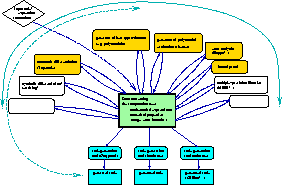- 11h30-13h30 : accueil et déjeuner
- 13h30-14h15 : Formal proof for delayed finite field arithmetic using floating-point operators, Marc Daumas (résumé)
- 14h15-15h00 : Certification de programmes d'analyse numérique, Micaela Mayero
- 15h00-15h30 : pause
- 15h30-16h15 : Compilation de programmes SCADE avec garantie de la précision numérique, Arnault Ioualalen (résumé)
- 16h15-17h00 : discussion
- 20h30 : restaurant les Adrets, 20 rue du Boeuf
- 09h00-09h45 : Méthode de relaxation pour certifier la solution d'un système linéaire, Hong Diep Nguyen
- 09h45-10h30 : Gradual Sub-Lattice Reduction*, Andy Novocin (résumé)
- 10h30-11h00 : pause
- 11h00-11h45 : Les extensions « C » et « surcharge » de Tapenade, Laurent Hascoët
- 11h45-12h30 : Multiplieur et racine carrée dans FloPoCo, Florent de Dinechin et Bogdan Pasca
- 12h30-14h00 : déjeuner
- 14h00-14h45 : Midpoints et exact points, Adrien Panhaleux
- 14h45-15h30 : Normalisation de l'arithmétique par intervalles : groupe de travail IEEE 1788, Vincent Lefèvre et Nathalie Revol
- 15h30-16h00 : pause
